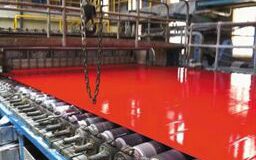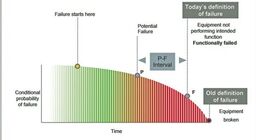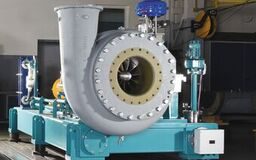WMU Pilot Plant Adds New Machine with Multi Ply Capability
Building on a long history of industry partnerships, as well as dedication to hands-on learning and research, Western Michigan University has officially opened its new, state-of-the-art Paper Machine and Fiber Recycling Plant. The newly-designed PM includes an extended base-ply fourdrinier and a complete top-ply fourdrinier, making it the only pilot scale, multi-ply dual fourdrinier in North America. The Fiber Recycling Plant has been upgraded as well and includes a mid/high consistency pulper, pilot scale Hollander beater, double disk refiners, screens, cleaners, and deinking/bleaching equipment. Combine these assets with the meter-wide, high-speed coater (installed in 2003) and it is easy to see that WMU is well-positioned to serve the paper industry and its Paper Engineering program for years to come.
The April 16 ribbon cutting ceremony was attended by WMU President Edward Montgomery, Vice President of Business and Finance Jan Van Der Kley, and many alumni, faculty, and current Paper Engineering students. The project “represents the best of WMU,” says Montgomery. “It is research that impacts the world and creates unparalleled opportunities for our students.”

The ribbon cutting also included the dedication of the paper machine and recycling plant to two distinguished alumni of the Paper Engineering program. The one-of-a-kind pilot-scale multi-ply PM was named in honor of alumnus Charles “Chuck” Klass, whose industry career has spanned more than five decades. Klass was instrumental in getting the NIST machine donated to WMU, and in the installation of the pilot coater back in 2003.
At the unveiling ceremony, Klass helped pull the first tail down the new paper machine—a fitting honor since, as a WMU student in 1958, he helped guide the first tail down the then-new McCracken paper machine. “WMU’s new pilot paper machine is the only publically available two-ply paper machine in the world to facilitate development of new value-added linerboard and white top linerboard grades and new-value added folding carton and composite grades. WMU is set to become the Center of Excellence in developing sustainable packaging and implementing novel technology,” says Klass.
The fiber recycling plant was named in honor of the managing director of WMU’s Paper Technology Foundation, alumnus John Bergin. The recycling facility is used to test and certify products for repulpability and recyclability, conduct deinking studies, and serve as the stock preparation area for the new paper machine. WMU has recently partnered with the Sustainable Packaging Coalition to be the certification site for its How2Recycle product labeling program.
“Western Michigan University’s modernized recycled fiber pilot plant is positioned to meet the scientific and developmental needs required for achievement of sustainable product and packaging,” Bergin says. “The facility and intellectual capacity to guide clients, allowing them to achieve environmentally preferred materials and products, is unsurpassed.”
PROJECT UPGRADES
The new-to-WMU paper machine replaces an older model the university used in the former McCracken Hall, which was installed in 1958. The recycling plant was originally installed in 1976 in McCracken Hall and has seen numerous upgrades over the years. The McCracken Hall site will be home to a new WMU Student Center, opening in the fall of 2021.

During its yearlong installation process on WMU’s Engineering Campus in Floyd Hall, the newer machine has been upgraded with many pieces of modern technology to help with trial efficiency and real-world learning for students. Upgrades to the pilot plants include a full DCS system, POM mixers (AFT) for quick grade changes, IR burners (Selas), Laxy Steam Injector (Wells Enterprises), in-line consistency (BTG), and the ability to run multi-ply products.
The project team included Walbridge Construction, APEC Engineering, Pro Services, Tower Pinkster, and KEI. Early on, the team decided to follow a design-build delivery system for this project, based on complexity and a tight timeline. The new paper machine is a combination of several machines, including the reel from the McCracken pilot coater; top ply wet-end from the McCracken paper machine; and the base-ply wet-end, press section, size-press, dryers, and calender stack from the NIST machine. NIST (National Institute of Standards and Technology) donated a paper machine to WMU several years ago, which enables WMU to test and develop two-ply paper and paperboard used in a wider variety of products, says Lon Pschigoda, WMU Pilot Plants general manager. Servicing industry clients from around the world, the WMU operation provides an outlet for companies to test new paper types, fibers, chemistries and equipment on a smaller scale, without having to interrupt their own production lines.
Students are excited about the opportunities the project offers. “The new facility opens new doors to the industries as well as to the students,” comments WMU senior Carla Castillo. “Since the paper machine has been upgraded, its capabilities are yet to be discovered; I think this is a perfect opportunity to test daring and experimental trials that are not yet ready for a bigger scale operation, but can be improved if small trials are conducted.”
Adds Andrew McCabe, studio coordinator at the school’s Office for Sustainability, “For myself and other students in the paper engineering program, the new dual-ply machine represents new opportunities to lead in the recyclability challenge as well as to continue to promote an engaged learning environment.”
Thanks to Lon Pschigoda, general manager of the Western Michigan University Pilot Plants, for providing the information for this article.




